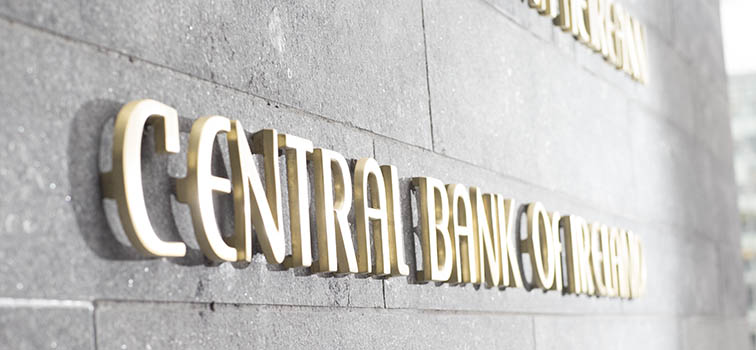Annual Report for 2017 published
09 May 2018
Press Release

- €2.6 billion in profit reported for 2017, with €2.1 billion transferred to the Exchequer
- Report highlights revised approach to prudential and conduct regulation
- Governor Lane invites the public to contribute to the development of the Central Bank’s Strategic Plan 2019-2021
The Central Bank of Ireland has published its Annual Report for 2017 (PDF 4.9MB). The report sets out how the Central Bank delivers on our mission of safeguarding stability and protecting consumers. It details the key achievements and activities undertaken in 2017 to meet the Central Bank’s strategic plan, across central banking, regulatory and operational functions.
The Central Bank is reporting a financial profit of €2.6 billion for 2017. After retained earnings, surplus income of approximately €2.1 billion will be transferred to the Exchequer. This profit continues to reflect the legacies of the financial crisis both domestically and in the euro area. The Central Bank’s headline profits will normalise over the medium term, with the fading out of the temporary impact of the special portfolio of floating rate notes.
Speaking at the launch of the report, Governor Lane commented on the main priorities and achievements of the past year. He noted that the ongoing economic recovery is expected to continue at Irish, European and global levels in the near term - supported across the eurosystem by the accommodative monetary strategy of the European Central Bank - but that prudential management of macro-financial tail risks is also necessary. He said, ‘stronger economic performance is very welcome in terms of its positive impact on living standards and financial stability. However small, highly globalised countries like Ireland are more volatile than larger economies, which means we can grow strongly for extended periods but are especially vulnerable to negative shocks. High stocks of both public and private debt and the inherent volatility of the Irish macro-financial system requires ongoing vigilance.'
He said, ‘this year we have continued to address the impact of Brexit, highlighting the major challenges and risk facing the Irish economy and the challenges for regulated firms. We expect to see an increased number of firms planning to establish a presence in Ireland. We also require that regulated firms already here have in place robust plans to deal with Brexit in whatever shape it materialises, especially those companies with exposure to the United Kingdom. The level of preparation by some firms remains a concern.’
He noted the significant work in relation to the Tracker Mortgage Examination, where considerable progress was made in delivering redress and compensation to over 37,000 customers. ‘The completion of the examination – including an assessment of the organisational cultures of the main banks – is a high priority for 2018’, he added.
The report details the work undertaken in financial regulation, which was underpinned by an enhanced regulatory approach through a restructuring of financial regulation into prudential and conduct pillars. In 2017, the Central Bank continued to enhance its resources in key areas and implemented and embedded significant improvements to its regulatory toolkit, supported by an effective, intrusive, analytical, and outcomes-focused supervisory approach. Through enforcement actions, the Central Bank continued to hold to account individuals and firms that breach the regulatory framework, while defending the integrity of our enforcement processes in the face of challenges by those against whom we have taken action.
Governor Lane concluded by inviting the public to contribute to the development of the Central Bank’s next strategic plan, which will run from 2019 to 2021. He said: ‘Today we are opening a period of public consultation on our future priorities. We encourage and welcome comments and suggestions from individuals or organisations that would help us develop our new plan. We welcome all views but we are particularly interested in views on how the Central Bank should address key developments in the financial system, the evolving economic environment and the primary risks facing consumers of financial services.’
Views on these issues can be sent to the Central Bank by emailing [email protected] until June 8th.